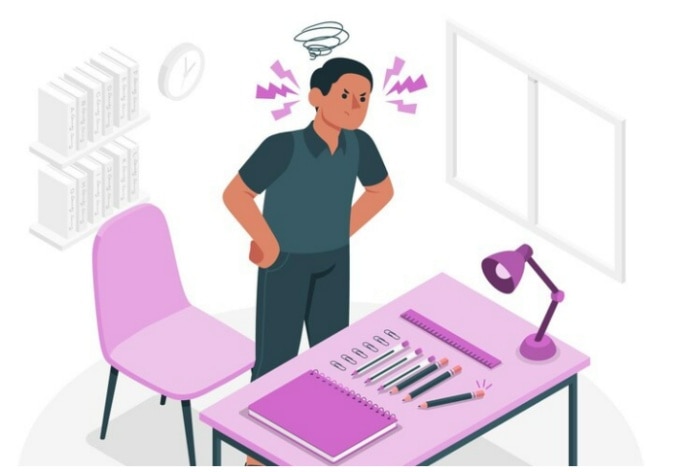OCD Symptoms: Do you clean your hands often? Does a slightly tilted painting bother you on the wall? Well, these could be songs of OCD – obsessive-compulsive disorder. It features a pattern of unwante
OCD Symptoms: Do you clean your hands often? Does a slightly tilted painting bother you on the wall? Well, these could be songs of OCD – obsessive-compulsive disorder. It features a pattern of unwanted thoughts and fears known as obsessions. These obsessions lead you to do repetitive behaviours, also called compulsions. These obsessions and compulsions get in the way of daily activities and cause a lot of distress. Ultimately, you feel driven to do compulsive acts to ease your stress. Even if you try to ignore or get rid of bothersome thoughts or urges, they keep coming back. This leads you to act based on ritual. This is the vicious cycle of OCD.
HOW TO MANAGE OCD EVERY DAY?
- Establish Routines: Creating structured routines and sticking to them can help manage OCD. Establishing regular daily activities, such as work or school schedules, meal times, exercise routines, and relaxation practices, can provide a sense of stability and reduce anxiety. Having a predictable routine can also make it easier to challenge and resist OCD-related rituals and compulsions.
- Self-Care and Stress Management: Prioritise self-care and stress management strategies to improve overall well-being and reduce OCD symptoms. Engage in activities that promote relaxation, such as mindfulness meditation, deep breathing exercises, physical exercise, and hobbies you enjoy. Take breaks when needed, get sufficient sleep, and maintain a healthy lifestyle with balanced nutrition.
- Mindfulness and Meditation: Practicing mindfulness and meditation can help you cultivate awareness of the present moment and reduce anxiety. Mindfulness involves actively observing your thoughts and feelings without judgment, while meditation involves focusing your attention on a specific object or activity. Regular practice can help you develop a greater sense of calm and detachment from obsessive thoughts.
- Deep Breathing Exercises: Deep breathing exercises are simple yet effective techniques to calm the nervous system and reduce stress. Practice diaphragmatic breathing by inhaling deeply through your nose, allowing your belly to rise, and exhaling slowly through your mouth. Deep breathing can be done anywhere and anytime you feel stressed or anxious.
- Physical Exercise: Engaging in regular physical exercise, such as walking, jogging, dancing, or yoga, can help reduce stress and improve mood. Exercise releases endorphins, which are natural mood boosters. Aim for at least 30 minutes of moderate-intensity exercise most days of the week, but start gradually and consult with your healthcare provider if you have any concerns.
- Relaxation Techniques: Explore various relaxation techniques, such as progressive muscle relaxation, guided imagery, or aromatherapy, to help relax your body and mind. These techniques can help you unwind, reduce muscle tension, and alleviate stress. Find the techniques that work best for you and incorporate them into your daily routine.
- Healthy Lifestyle: Maintain a healthy lifestyle to support overall well-being and reduce stress. This includes getting enough quality sleep, eating a balanced diet, limiting caffeine and alcohol intake, and avoiding tobacco and recreational drugs. Taking care of your physical health can positively impact your mental well-being and help you better manage OCD symptoms.
Remember, it’s important to work with a mental health professional experienced in treating OCD to develop a comprehensive treatment plan that addresses your specific needs. They can provide guidance on which stress management strategies are most suitable for you and how to integrate them into your daily life.
It’s important to remember that managing OCD is an ongoing process, and progress may take time. Be patient with yourself and celebrate small victories along the way. Additionally, involve supportive family members or friends in your treatment journey, as their understanding and encouragement can make a positive difference. If you’re feeling overwhelmed, don’t hesitate to reach out to your mental health professional for guidance and support.
–>
